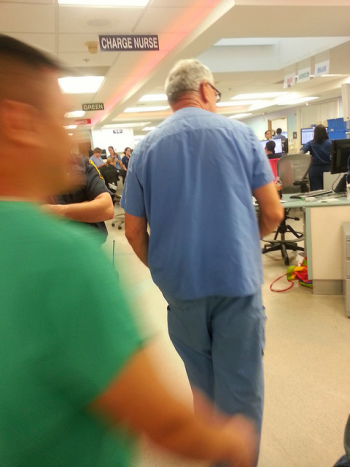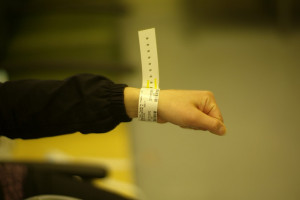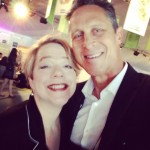How Functional Medicine is transforming my health
I am not a diabetic. I am a person with diabetes. I am not any of the health conditions that have plagued me in recent years. I am a whole person, a complex biological system that should not be chopped up into little segments. This is why I’ve embraced Functional Medicine, and it’s transforming my health.
I could just as easily say “Functional Medicine has transformed my health” — because it already has — but I don’t see wellness as a finite goal. I see it as a continuum, part of my everyday experience. It is my everyday experience, because every part of my life is fueled by my wellness, and vice versa.
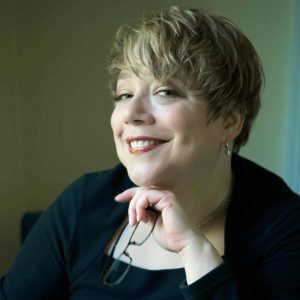 My health transformation began in 2013, when I was significantly overweight. I could attribute some of it to bad habits, but a rapid piling on of the pounds in a single year made me think there was more to it than that. And I was right.
My health transformation began in 2013, when I was significantly overweight. I could attribute some of it to bad habits, but a rapid piling on of the pounds in a single year made me think there was more to it than that. And I was right.
I wasn’t just overweight. I struggled to control my Type 1 diabetes. I was taking two blood pressure medications, one medication to manage my gastrointestinal troubles and another to manage my hormones. I suffered from insomnia, inflammation, lack of energy and various musculoskeletal woes.
Even though I write about healthcare for a living, all the things I was told would help weren’t getting me anywhere. When I talked to one of my doctors about losing weight, he told me, “Don’t eat bread.” When I asked for more guidance he shrugged and said, “I don’t know what else to tell you.”
Fortunately, a friend told me about Functional Medicine, a truly patient-centered approach to health and wellness that looks at the root causes of disease. It combines traditional medicine with holistic, naturopathic modalities and focuses on answering the question, “What is the root cause of these health issues?” instead of simply trying to mask or correct the symptoms with medication. Functional Medicine looks at all the factors that might impact a person’s health and then creates a personalized plan of action.
I started working with a Functional Medicine practitioner, Heidi Iratcabal, N.D. After one of the most thorough medical histories I’ve ever experienced, she identified a primary cause of my health issues as being in my gut. My gut bacteria was completely out of whack and causing a host of problems throughout my body. She told me that the responsibility to make the necessary lifestyle changes was all mine, but that she would walk with me on the journey.
With Heidi’s guidance, I went on a personalized healing and elimination diet, to zero in on foods that might be contributing to my poor health due to allergies or sensitivities. The first month was rough, which she warned me would be the case. My body was detoxing. I was addicted to refined carbohydrates and sugar. But once I got through that, I started to feel better.
Since then, I have never stopped feeling better.
 I eliminated all the problematic foods from my diet: gluten, dairy, sugar, anything GMO or processed — including corn and soy — and anything pumped with chemicals or antibiotics. It’s not a fad diet. It’s a way of clean eating that ditches ingredients that create inflammation in my body in favor of whole, real food. I’ve upped the nutritional value of my diet immeasurably, although judicious use of supplements has helped, too.
I eliminated all the problematic foods from my diet: gluten, dairy, sugar, anything GMO or processed — including corn and soy — and anything pumped with chemicals or antibiotics. It’s not a fad diet. It’s a way of clean eating that ditches ingredients that create inflammation in my body in favor of whole, real food. I’ve upped the nutritional value of my diet immeasurably, although judicious use of supplements has helped, too.
I lost 100 pounds over 18 months almost effortlessly. The better I felt, the more motivated I was to start walking and practicing yoga regularly, and work on reducing stress (a big issue for me and my health) — and the circle of wellness has continued perpetuating itself. It’s not just about what I eat. It’s about how I feel and how I live.
I eat really well, as much as I want of the foods I do eat. My diet isn’t really all that limited, and it includes a few treats here and there, like some occasional dairy-free ice cream. By rediscovering my cooking skills (thanks, Mom!), I make incredibly yummy food. I call it my “new fooditude” and created a Pinterest board where lots of my favorite recipes live.
But it’s not just about weight loss. It’s about how my entire body has responded in positive ways to my lifestyle changes. My insomnia is gone. I’ve stopped taking hormones, stomach medicine and blood pressure medication. I take less insulin than ever, even though I’ll always need it. All the lab tests that measure my health continue improving or holding at a good place. I’m happier, too. Less stressed out, in part because I know that I am in charge of my health, and I now understand that everything I think manifests in my well-being.
While working with Heidi, I’ve continued seeing my traditional practitioners. One of my doctors said to me recently, “I never imagined I’d ever see a patient transform their health this way.”
Yet he never asked how I did it. He’s impressed by the lab results, but doesn’t seem to have any interest in learning what I did that might help his other patients.
Fortunately, the mainstream is starting to recognize that Functional Medicine works. The Cleveland Clinic has opened a Center for Functional Medicine, which means this evidence-based, personalized approach will start reaching more and more Americans.
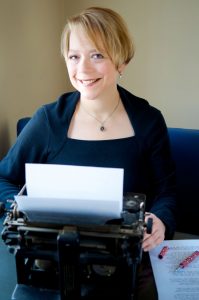 I’ve never felt better. And I’ll never go back, because I now know what it means to live in true wellness and vitality, even as I manage life with a chronic condition.
I’ve never felt better. And I’ll never go back, because I now know what it means to live in true wellness and vitality, even as I manage life with a chronic condition.
I am not my disease. I am not a collection of health issues and symptoms. I am a whole person, who deserves healthcare that treats me as such.
With Functional Medicine, I’ve found an approach that sees me for everything I am — mind, body and spirit. Perhaps most exciting of all, it’s an approach that’s put me in charge because I no longer feel like I’m trying to “treat” conditions only a doctor could fix. With the guidance of my healthcare team, I make the decisions that have transformed my entire body into a healthier place to live.
I don’t define myself as a diabetic. Finally, I’ve found an approach to wellness that doesn’t define me that way, either.
[Photo credits: LAF Lines Photography (top and bottom) and Anne Savage (center).]

